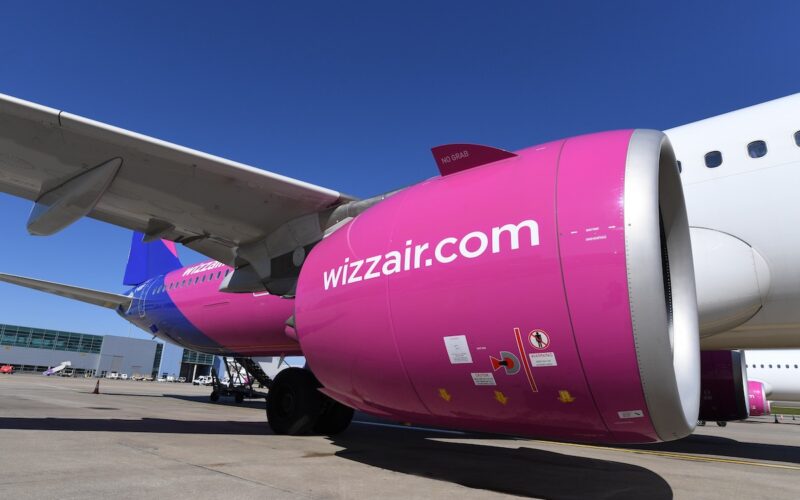Wizz Air’s Obsession with Efficiency Leads to Sustainable Success

Wizz Air, known for its obsession with efficiency, has been making positive strides in reducing its environmental footprint. In June 2023, the airline was honored with the prestigious title of ‘Most Sustainable Low-Cost Airline’ at the World Finance Sustainability Awards 2023, marking the third consecutive year it received this recognition.
This recent award adds to the list of Wizz Air’s accomplishments in the sustainability arena. In 2022, the airline was bestowed with CAPA’s Global and EMEA Environmental Sustainability Airline Group of the Year accolades.
At the heart of Wizz Air’s sustainability efforts is its fleet investment program, which plays a crucial role in enhancing the airline’s eco-credentials. With a focus on fuel efficiency, Wizz Air’s state-of-the-art fleet, particularly the Airbus A321neo aircraft, equipped with high-density cabins seating 239 passengers, boasts a lower per passenger carbon footprint compared to many major airlines.
The airline’s Chief Executive Officer, Joszef Várady, emphasized the importance of this aspect during a recent interview. However, this is just one part of Wizz Air’s comprehensive sustainability agenda.
Yvonne Moynihan, Corporate and ESG Officer at Wizz Air Group, delved into the airline’s sustainability strategy and its various initiatives in an in-depth interview with AeroTime. Moynihan, a seasoned airline executive, has been leading Wizz Air’s Environmental, Social, and Governance (ESG) projects, which are designed to permeate every aspect of the company.
A primary sustainability metric that Wizz Air closely monitors is CO2 emissions per passenger per kilometer, a measure of carbon intensity. The latest annual report for the fiscal year up to March 2023 indicated that Wizz Air excelled in this metric, boasting an edge over competitors at 53.8g per passenger per km.
To bolster its commitment to sustainability, Wizz Air has engaged in multiple fuel-saving initiatives across various operational areas, including flight planning and ground operations. The airline aims to reduce carbon emissions to 42.6g per passenger per km by 2030.
Looking toward the long term, Wizz Air is actively involved in projects focused on sustainable aviation fuels (SAF). While working with Airbus on the ZEROe project, aiming to launch a family of hydrogen-powered aircraft by 2035, the airline is also investing in two SAF production startups, Firefly and CleanJoule. These initiatives are part of Wizz Air’s comprehensive portfolio approach to secure a sustainable future.
In addition to its focus on emissions reduction, Wizz Air tracks non-carbon emissions, manages waste, and advocates for environmental responsibility among its suppliers. The airline is determined to lead the way in sustainability within the aviation industry and relies on factual data and consumer feedback to stay true to its mission.
Though challenges lie ahead, Wizz Air remains steadfast in its commitment to sustainability and is optimistic about a greener future for aviation. The airline’s dedication to efficiency and sustainability continues to set a benchmark for the industry and drive positive change in the world of low-cost air travel.
